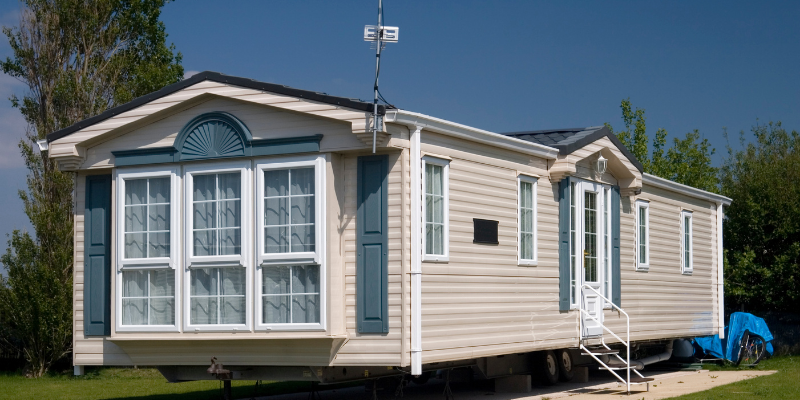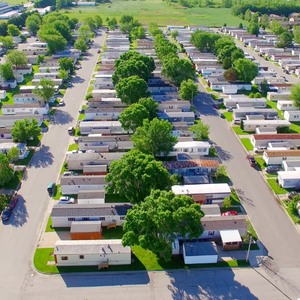
Understanding the Legal Requirements for Selling a Mobile Home
Mobile homes exist as a relatively convenient affordable housing option for many people looking for a place to live, making the buying of a mobile home as appealing as its selling. However, selling one is quite complicated given that every state has its own set of rules pertaining to selling and buying a mobile home, which can include the selling mobile home title, loans, or even describing its current state.
Without a legal mobile home title, no one is able to sell or transfer ownership legally. There exist other factors that come into play, such as other loans and collateral that accompany the mobile home. Additional legal requirements concern the mobile home seller, which include knowing if the mobile park includes some local governance clauses, as well as the condition the mobile must be in, state/or federally-mandated disclosures where the seller is to explain the state of the mobile home.
If you’re looking for a straightforward and hassle-free way to sell your mobile home, working with a buyer like Mobile Home Cash Offer can make the process much easier. They specialize in purchasing mobile homes directly, handling much of the paperwork and legal requirements so you can close quickly and confidently.
When Do You Legally Need a Lawyer to Sell a Mobile Home?
Selling a mobile home can seem straightforward, but certain legal situations may require the guidance of a lawyer to avoid costly mistakes or delays. Below are key scenarios where involving a legal professional is highly recommended:
- Disputed Ownership: If there are disagreements about who legally owns the mobile home, a lawyer can help resolve the issue.
- Title Issues: When the mobile home title is missing, unclear, or has multiple names, legal assistance is often necessary.
- Outstanding Liens: A lawyer can help navigate the payoff or settlement of existing loans or liens on the mobile home.
- Inherited Property: If you’re selling a mobile home inherited through an estate, legal guidance ensures compliance with probate laws.
- Park Rules & Lease Contracts: Legal advice can clarify complex lease terms or restrictions within mobile home parks.
- Boundary or Land Disputes: A lawyer may be needed if the mobile home’s placement involves unclear property lines or land ownership.
- Seller Financing Agreements: Drafting or reviewing financing agreements when offering terms to a buyer typically requires legal input.
- State or Local Regulations: Legal professionals can ensure you meet all location-specific requirements when selling your mobile home.
While not every mobile home sale requires a lawyer, certain legal complications make professional help essential. For a stress-free experience, especially in complex situations, it’s wise to consult with a lawyer or consider working with experienced buyers like Mobile Home Cash Offer, who understand the legal process and simplify it for you.
How State Laws Affect Your Mobile Home Sale and Legal Needs

The local regulations in your state significantly impact how you can legally sell your mobile home, and not following them may create legal problems or delays. Some state laws consider a mobile home as personal property which entails a title transfer at the DMV, while others consider a mobile home that is attached to land as real estate which necessitates a deed transfer at the recorder’s office. These distinctions influence mobile homes in terms of documentation, taxes, and, ownership.
Other jurisdictions have property tax clearance, HUD compliance verification, or even mobile home-specific disclosure requirements. If the mobile home is situated in a mobile home park, there are other regulations that may need park approval. Understanding the mobile home legal framework for the area where the home is located is important, as laws are very diverse across states. The mobile home can be sold without legal complications. However, legal expertise or an experienced buyer is also vital to ensure there are no voided sales, fines, or conflicts with potential buyers, especially when you also need to get a mobile home appraised
What Legal Documents Are Required to Sell a Mobile Home?
Selling a mobile home requires having the right documents in place to ensure a legal and successful transaction. These documents not only protect both buyer and seller but also help meet state and local requirements.
- Title Certificate: Proves ownership of the mobile home and must be legally transferred to the buyer.
- Bill of Sale: Outlines the terms of the sale, including price, buyer/seller details, and mobile home description.
- Tax Clearance Certificate: Confirms all property taxes on the mobile home are paid up to date.
- Mobile Home Park Approval Letter: Required if the mobile home is located in a park and the buyer plans to keep it there.
- Disclosure Statement: Provides information about the mobile home’s condition and any known issues, as required by law.
- Proof of HUD Compliance: Verifies that the mobile home meets federal housing standards if built after 1976.
- Identification Documents: The Seller and Buyer must provide valid IDs for notarization and official records.
- Lien Release (if applicable): Needed if there was a loan on the mobile home that has been paid off.
Having these documents ready helps streamline the mobile home selling process and ensures you’re meeting all legal obligations for a smooth transfer of ownership. If you want to sell your mobile home for cash in Texas or nearby states, having everything in order will make the sale faster and easier
Common Legal Issues When Selling a Mobile Home Without a Lawyer
Selling a mobile home without legal guidance can lead to several complications that might delay or even jeopardize the transaction. It’s important to be aware of these common legal issues to protect yourself during the sale.
- Title Problems: Missing or unclear titles can make it difficult to legally transfer ownership of the mobile home.
- Undisclosed Liens: Failing to reveal outstanding loans or liens on the mobile home can cause disputes with buyers.
- Improper Paperwork: Errors or missing documents can invalidate the sale or delay closing.
- Inaccurate Disclosures: Not fully disclosing the mobile home’s condition may lead to legal claims after the sale.
- Lease and Park Restrictions: Overlooking mobile home park rules or lease agreements can create legal hurdles.
- Boundary or Land Use Disputes: Issues related to the land under or around the mobile home may complicate ownership transfer.
- Buyer Financing Issues: Without proper legal agreements, seller financing arrangements can result in misunderstandings or defaults.
- Failure to Comply with State Laws: Each state has unique mobile home sale regulations, and missing these can cause legal penalties or void the sale.
Navigating these legal issues without a lawyer can be risky, so seeking professional advice or working with knowledgeable buyers can help protect your interests when selling a mobile home. If you want to sell your mobile home for cash in Louisiana or nearby states, partnering with experienced buyers can make the process safer and smoother.
The Role of a Lawyer in a Private Mobile Home Sale

A lawyer can make the mobile home selling process easier when a seller is selling privately, meaning that they do not need an agent’s help. Selling a mobile home typically requires so much paperwork that entails a title, disclosures, and rules that need to be followed on a state and local level. A lawyer is there to ensure that these documents are reviewed and prepared properly so that everything is checked off, which will eliminate any future issues that might arise, like a notice of removal of the mobile home from the property. This becomes more critical in situations where a mobile home’s jurisdiction crosses state boundaries because the absence of even the tiniest consideration can create complications legally or in terms of time.
A lawyer can also assist in navigating through negotiations to make sure that no legal disputes arise in the midst of the mobile home sale. A legal hand will make it easier in situations like defining some portions of the sales agreement or discussing claims that may interfere with the property, otherwise known as a Lien and Encumbrance. Involving a lawyer before finalizing the deal in every legal matter ensures that a seller does not get fleeced and there is no deception that occurs, thus meeting every legal prerequisite.
How to Handle Mobile Home Title Transfers Legally and Smoothly
Mobile home ownership changes can be managed efficiently using selective legal supervision. Mobile home ownership can only be changed with a sale when showing proof of ownership and title. This means a mobile home’s sale is contingent on the available title, meaning the title proving ownership must be correctly and properly transferred. In this case, the seller needs to get the title deed, ensure there is no outstanding lien or credit on the mobile home, and follow through with local and state-required transfer forms.
It is also important to follow through with state procedures, which can range from surrendering the title to the local car registration office, paying change of ownership fees, and providing buy/sell signatures. Errors in the steps provided can alter the procedure and cause disputes over ownership claims. Working with title claiming experts enables easy navigation of instructions relating to ownership changes without making losses due to technical legal loopholes claimed while working with buyers, and addressing the changes.
Can You Sell a Mobile Home Yourself Without Breaking Any Laws?
Selling a mobile home by yourself is legal, but without professional help, it can lead to many legal complications. Mistakes while selling/ buying a mobile home can have serious legal consequences. A seller needs to shift their focus from just searching for a buyer to meeting legal criteria statewide, which includes providing properly signed disclosures, a clear title, correct documentation, and compliance with state laws. Any mistake in these criteria can lead to legal ramifications, long waits, or void the sale altogether.
Not hiring a legal consultant opens doors to bypass various legal checks such as lien checks, title agreements, lease covenants and city mobile home park protocols. Laws also differ vastly from one state to another which increases chances of non compliance with the law. A legal consultant or a professional mobile home buyer can alleviate any stress surrounding the sale and ensure the seller is compliant with the law.
Mobile Home Selling Costs: Is Hiring a Lawyer Worth It?

Selling the mobile home entails numerous expenses like paperwork, title transfers, taxes, and sometimes repairs or inspections. Hiring a lawyer incurs additional costs; however, their skill set can help you avoid costly mistakes, legal battles, procrastination in your selling timeline, or a multitude of other expensive disputes. A lawyer guarantees that all steps and processes are completed and the sale of the mobile home is completed, saving you precious time and cents.
Working with companies such as Mobile Home Cash Offer allows individuals to sidestep the legal complexities involved in selling a mobile home. This company buys mobile homes directly and takes care of a lot of the legal documentation and other necessities. Their efforts allow individuals to save on mobile home legal services while still selling in a legally acceptable manner.
Do you need a lawyer to sell your mobile home? Sometimes yes, but not always. A lawyer can help with paperwork and legal rules, so you avoid problems. If you want to sell fast and easily, Mobile Home Cash Offer can help. We buy mobile homes for cash and handle all the details, no lawyer needed. Have questions or ready to sell? Contact us at 214-444-6375 for a free offer. Get started today!
